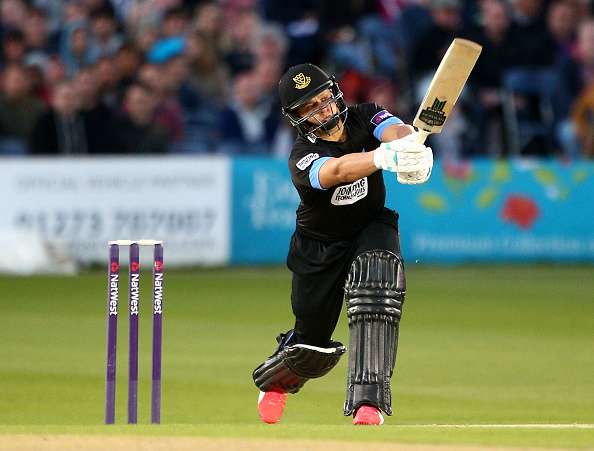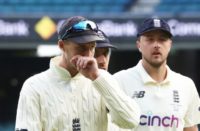The uncertainty over Brexit is not limited to big business and little Englanders. Much of the country’s sport could be radically changed, too, if the United Kingdom votes to put more than the Channel between us and Europe.
For one thing, Kolpak and Cotonou Treaty players, many of them part of the furniture in English cricket, football and rugby, could suddenly become personae non gratae on June 24 should the “Leave” campaign, backed by big-hitters Ian Botham, Boris Johnson and Michael Gove, win the day.
According to the “Leave” campaign website, they would drastically reduce immigration from within Europe, currently compulsory due to our membership of EU. It is the emotive heart of their campaign and would, at a stroke, turn Kolpak players into overseas ones, which means that instead of being able to play freely here they would require a work permit instead.
That change would place them into direct competition with overseas players, which counties began signing as long ago as the Sixties and, in isolated cases, even before that. At present only one overseas player per county is allowed (two in the T20 Blast) and, while the odd Kolpak cricketer is probably good enough to become a team’s overseas player, most are not and they would have to find alternative employment.
It would also change the status of Cotonou Treaty players – a trading agreement signed between the European Union and some African countries, the Caribbean and certain Pacific islands – with similar effect.
Cotonou allows players like Trinidad and Tobago’s Ravi Rampaul to play for Surrey without being considered an overseas player, something he would not be able do if the UK leaves Europe and Boris and Co get their way.
Most counties have one or two such players on their staffs which would mean between 30-40 players being affected, though there would be many more in football.
Some cricket supporters might welcome the change, the omission of such players opening up places for England-qualified cricketers. Yet Kolpak and Cotonou players, in the absence of top-quality overseas players too busy to play a full season in England, have helped to raise standards in domestic cricket. Without them the end product would be poorer, at least for a while.
It is worth recalling how such a complicated system (complexity being another of the “Leave” campaigns bugbears about Europe) came into being in county cricket. Maros Kolpak, a Slovak handball player, plied his trade in German handball leagues until being told he could no longer do so, Slovakia not yet being a member of the EU.
He took his case to the European Court of Justice (another bete noire for the “Leaves”) in 2003, which ruled that as Slovakia had an Association treaty with EU (like Cotonou), he could carry on playing. That made it open season in county cricket for anyone born outside the UK who could find a similar connection, and plenty could. Indeed, Northamptonshire had so many at one stage they became known as Kolpakshire.
Incentives for counties from the England and Wales Cricket Board, like bonus payments for the number of England-qualified players under 23 in the team, has reduced Kolpak numbers from their peak in the mid-Noughties.
Yet, if the Brexiteers are successful and their manifesto has not been spun too hard, Kolpaks could become extinct very quickly.
Of course, you have to be able to read the spin, never an Englishman’s strength on a cricket field.
According to the “Remain” campaign, immigration from Europe will scarcely change in the event of Brexit. Citing the examples of Norway and Switzerland, neither currently members of the EU, “Remain” reckons the UK’s lot will be the same as theirs which, as it stands, sees both countries having to observe the free movement of labour from within the EU and, presumably, those countries around the world with whom it has treaties.
The ECB, who have tried to wean counties off using Kolpak players anyway, appear to be relaxed about any outcome. At present, a triumph for the “Leave” campaign is a hypothetical situation and, as Richie Benaud used to say – “I don’t deal in hypotheticals.”
Change will not happen fast whoever triumphs on June 23. For one thing, if the UK votes to leave the EU, the Government will have to sign Article 51, something that could take up to a year to do.
They would then have another two years to negotiate new trade agreements with the EU which gives everybody in cricket – the counties, Kolpak players, the ECB – about three years grace to get things sorted in the event of Brexit.
That has not stopped some counties from extending the contracts of their Kolpaks in preparation for any change that may occur.
According to a fan’s forum, Sussex have apparently done this with Craig Cachopa, a Portuguese passport holder born in South Africa.
Cachopa, 24, is a wicketkeeper/batsman. But while it might have been prudent to have waited until the end of the season to decide whether or not to extend his contract until 2017, Sussex have done so now in the hope it will be honoured whichever side triumphs in June. Cricket has never transferred fully over the Channel, save for pockets in the Netherlands.
That minute territorial gain has not stopped cricketers with Italian grandmothers and Spanish grandfathers from playing in England under Kolpak.
The final word, as it often does, should belong to Botham, who last week laid out the reasons for backing the “Leave” campaign in the Sunday Times.
“In my cricketing career, I played alongside teammates and against opposition, from all over the world – from India, Australia, the Caribbean,” said Botham.
“Countries like these are our natural friends. It is wrong that we have to discriminate against people from outside Europe who want to come here to work and live because we are legally bound to accept immigration from the EU.”
In two months’ time we’ll know how many concurred.
This piece originally featured in The Cricket Paper, Friday April 29 2016












